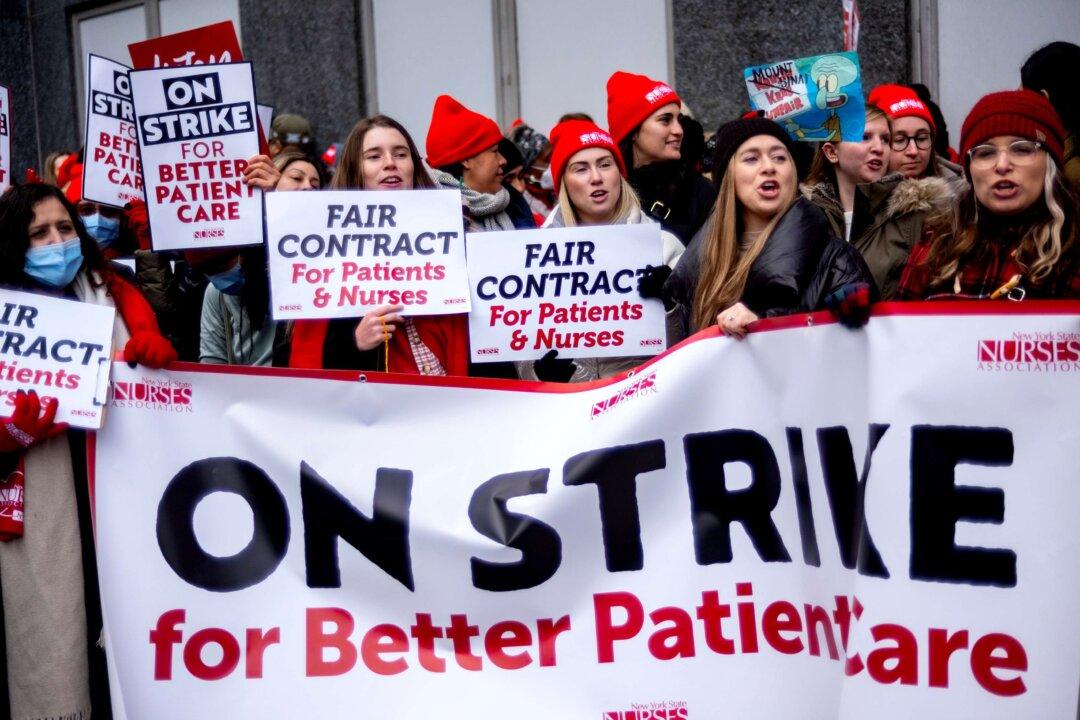Negotiations between a large New York nursing union and two major New York City hospitals fell through on Jan. 9 as more than 7,000 nurses went on strike.
“After bargaining late into the night at Montefiore and Mount Sinai Hospital yesterday, no tentative agreements were reached,” the New York State Nurses Association (NYSNA) said in a statement. “Today, more than 7,000 nurses at two hospitals are on strike for fair contracts that improve patient care.”





